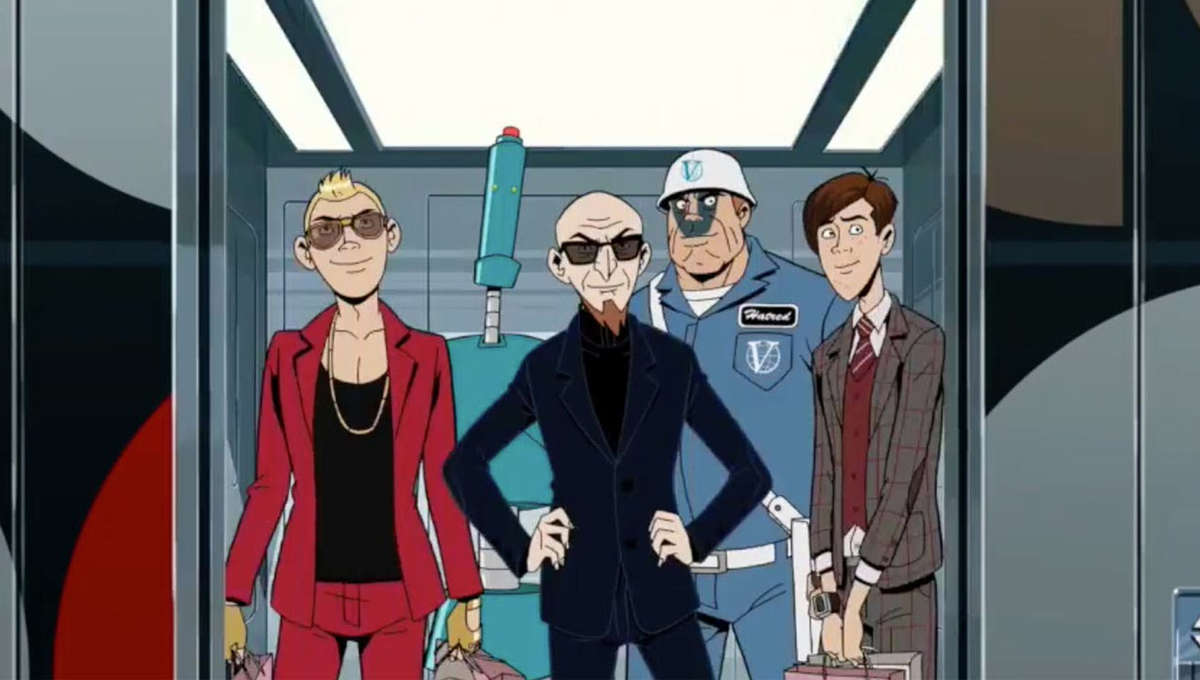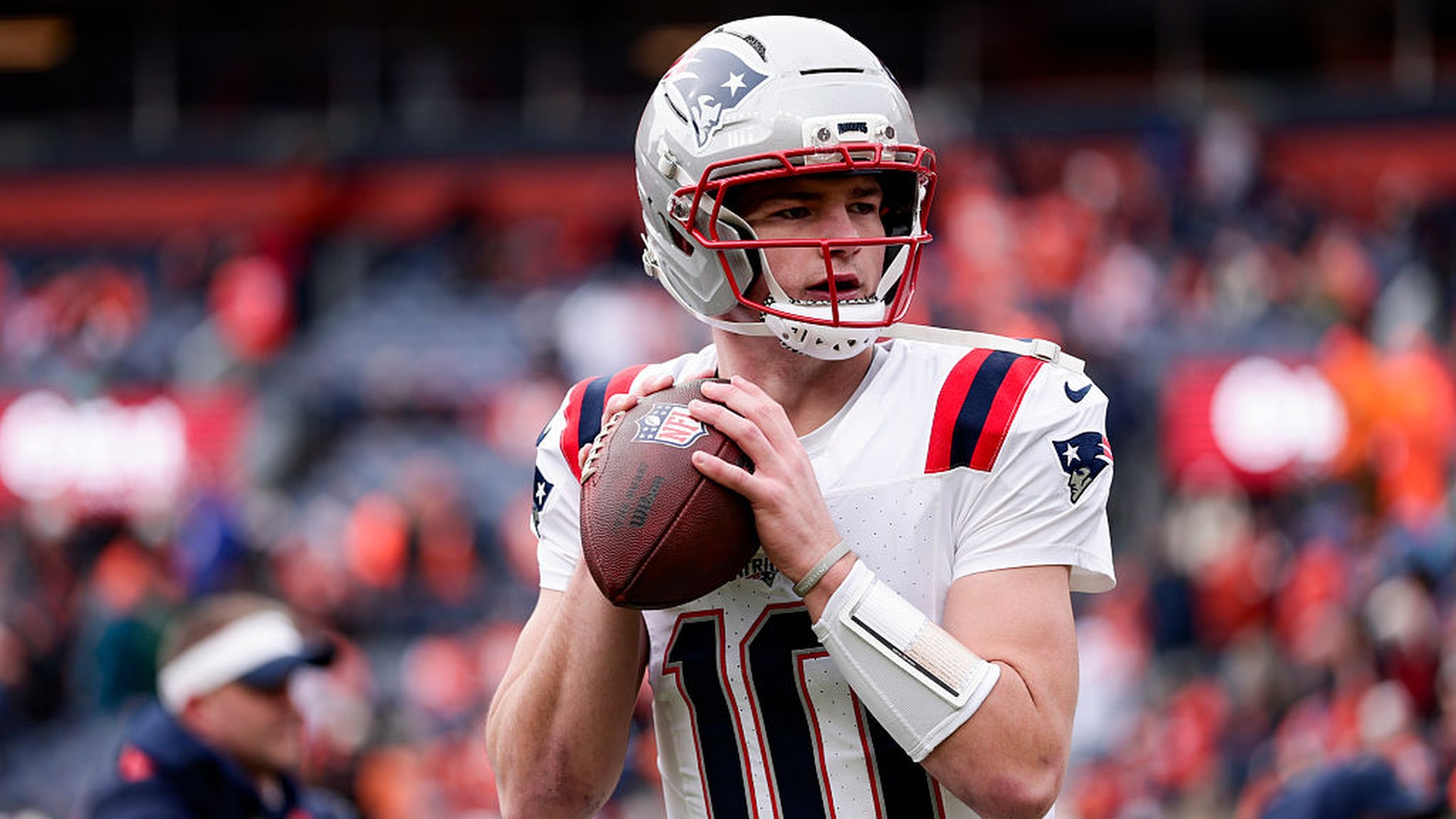Why 'The Venture Bros.' is one of the best TV shows that many skipped
Adult Swim may have canceled it after seven seasons but The Venture Bros. remains one of modern-day TV's finest achievements.

The latest updates, reviews and unmissable series to watch and more!
You are now subscribed
Your newsletter sign-up was successful
Want to add more newsletters?

ONCE A WEEK
What to Watch
Get all the latest TV news and movie reviews, streaming recommendations and exclusive interviews sent directly to your inbox each week in a newsletter put together by our experts just for you.

ONCE A WEEK
What to Watch Soapbox
Sign up to our new soap newsletter to get all the latest news, spoilers and gossip from the biggest US soaps sent straight to your inbox… so you never miss a moment of the drama!
It was recently announced that Adult Swim had made the decision to cancel The Venture Bros. after seven seasons and seventeen years on the air. Jackson Publick, one of the series’ co-creators, took to Twitter to reveal that the news came as they were working on an eighth season that had previously been announced as the show’s conclusion. Following this shocking news, Adult Swim stated via Twitter that they "also want more Venture Bros. and have been working with Jackson and Doc [Hammer, the show’s co-creator] to find another way to continue the Venture Bros. story."
For fans of Team Venture, this news was immensely disappointing, to say the least. Most of us were used to waiting years in-between seasons, an agonizingly slow process that became a running-joke of sorts in the fandom. The series was always a niche product, the kind of show that fully epitomized the concept of cult entertainment, yet it inspired rabid devotion and the sort of critical acclaim that most showrunners would perform human sacrifices to attain. For those in the know, The Venture Bros. wasn’t just a great animated comedy: It was one of the smartest and most fascinating series of the 21st century. Indeed, it’s truly one of the best of its kind.
The Venture Bros. started in 2004 with a simple concept: What if the boy adventurers of clean-cut children’s entertainment such as the Hardy Boys and Jonny Quest were more emotionally impacted by their antics than their fluffy good times nature would suggest? The guileless brothers, Hank and Dean, are sent on ludicrous and often suicidal capers by their jaded father, Dr. Thaddeus "Rusty" Venture, a former boy adventurer himself who is still bitter over his own super-scientist father's mistreatment of him. Along the way, they encounter super-villains and myriad baddies along with ghosts from the Venture family’s past. It’s a great set-up for the kinds of comedies that Adult Swim, the more grown-up and esoteric evening programming block of Cartoon Network, has made its bread and butter. But from thereon, things got very weird very fast.
What started out as a one-joke show evolved into a multi-layered and incredibly dense meta-commentary on toxic nostalgia and the pain of human disappointment, all told with an ever-expanding ensemble of three-dimensional characters and seasons-long running-jokes. Something said in an early season as a quick gag would be built up into a crucial part of the wider narrative and taken totally seriously. The decisions of the past always mattered, and characters were given dozens of episodes to grow, change, and reach often devastating conclusions about their own existence. For example, it’s a funny joke that Hank and Dean end up dying a lot on their ridiculous adventures, so their father just replaces them with clones. It’s a commentary on the genre it’s parodying while being a proud part of. The show, however, takes that concept to its logical conclusion and has Dean Venture become truly tortured by the knowledge of his own replaceable mortality.
The heart of The Venture Bros. in its early days was failure. These are characters who often seem doomed to it, forced to repeat the mistakes of the past and stuck in a cycle of perpetual frustration that their own hubris won’t allow them to escape from. This is a common theme in modern animation thanks to the success of incredible shows like Netflix’s BoJack Horseman, a black comedy that feels like a lost sibling to The Venture Bros. What Hammer and Publick soon realized, however, was that characters like these could not live on failure alone. You have to give them victories now and then, minor or otherwise, and the audience roots for them. They may have started out as caricatures, but they’ve long moved beyond such one-dimensional notions. Whether it’s one-time boy genius turned wannabe super scientist Billy Quizboy, or the Impossibles, a parody of the Fantastic Four with less useful powers and more familial strife, everyone needs a break now and then. The best parodies work when the creators have real love for their own creation rather than endless derision, and Hammer and Publick clearly give a crap about these weirdos. They’re real enough to be endearing without sacrificing their barmy nature.
Pop culture parodies are ten a penny on Adult Swim, from the police procedural pastiche NTSF:SD:SUV:: to Eagleheart, Chris Elliott's three season-long love-letter to Walker, Texas Ranger. For The Venture Bros., its targets-slash-fannish attention fell to a variety of titles: Batman in all his various iterations, silver-age comic books, and Saturday morning kids’ cartoons, to name but three. The series is merciless in its mockery but never with malice or any sort of contempt for its topics or targets. It’s way too smart for that. Rather, it takes on the toxicity of nostalgia itself and how ultimately damaging it can be for people (mostly men) to cloak themselves in the comfort of the past, whatever shape that may take. Clinging to the past, however warm and safe it may be with its toys and gadgets and reminders of childhood simplicity, won’t make you happy in the long-term. You don’t have to let go of your hobbies, but you do need a healthier relationship with them.
The sweet spot of the series comes in how it blends the fantastical with the mundane. In this world of super-scientists and villainous nemeses, there’s a multi-level bureaucratic system to navigate, with various groups and unions battling it out over the silliest of concessions (and also David Bowie is in charge of part of it.) Sure, being a heroic adventurer sounds fun. But any vaguely realistic version of that would come with tons of paperwork and corporate oversight, and The Venture Bros. mines that for all its comedic worth.
The latest updates, reviews and unmissable series to watch and more!
Adult Swim has made a name for itself over the years thanks to its deeply arcane programming and willingness to let even the most niche shows take their time to develop into something far more challenging in a way that few networks would ever allow. Think of shows like Metalocalypse or Moral Orel or Rick and Morty, the current jewel in their crown. They all started with pretty standard concepts that often relied on one joke that would appeal to a handful of viewers, then slowly changed into complex, often-labyrinthine creative successes that few people would ever see by design.
Metalocalypse began life as a metalhead Spinal Tap then grew into a grandiose dystopian fantasy tale that culminated in a full-on rock opera. Moral Orel spent a season mocking shoddy religious programming for kids in increasingly dark ways, then became one of the smartest and bleakest portrayals of familial abuse and depression that treated issues as serious as abortion, rape, and suicide with dignity and respect. Rick and Morty’s unexpected mainstream success is the exception that proves the Adult Swim rule, and it’s a minor miracle that a series this dark and nihilistic has become so popular without ever diluting its own concept. Of course, The Venture Bros. was what helped to pave the way, and it remains the defining series of Adult Swim for that very reason.
It was hard for outsiders or novices to join Team Venture. Unlike fellow Adult Swim animated comedies like Squidbillies and Robot Chicken, you can’t start with any random episode and go with the flow. It’s a show that truly requires you to devote your focus from the premiere because it’s the only way you’ll get all the jokes, embrace these characters and wholly understand what makes the series so special. Even reading the series’ Wikipedia recaps of episodes feels like a daunting task, as they are so overladen with information that must read like an alien language to those not in the know. At a time when we all have so little of it and way too many other shows to watch, it’s a commitment a lot of people have neither the energy nor inclination to take on. That may be why the viewer numbers stayed so minuscule, even as critics like me shouted their raves from the rooftops. It’s hard to tell people to watch dozens of episodes (and lots of re-watches to get all the small details) then make them wait potentially years for the new season.
I dearly hope that The Venture Bros. is able to reach a satisfying conclusion. It would be a real shame, as well as a betrayal of the series’ own ideas, if it were simply left to languish with so many loose ends forever untied. It never got the credit it deserved but in a way that’s perfect for The Venture Bros., a niche masterpiece forever overshadowed by the competition. This is a lightning-in-a-bottle show, a series that could only have happened at that moment in time with this network and during this era of pop culture. For those of you who have yet to explore the world of the Venture family, I can’t help but envy you for the chance to see this piece of true creative brilliance for the very first time once more. For now, let us celebrate seven seasons of genius television and hope that The Venture Bros. will end its finale on its own terms.
Kayleigh is a pop culture writer and critic based in Dundee, Scotland. Her work can be found on Pajiba, IGN, Uproxx, RogerEbert.com, SlashFilm, and WhatToWatch, among other places. She's also the creator of the newsletter The Gossip Reading Club.


